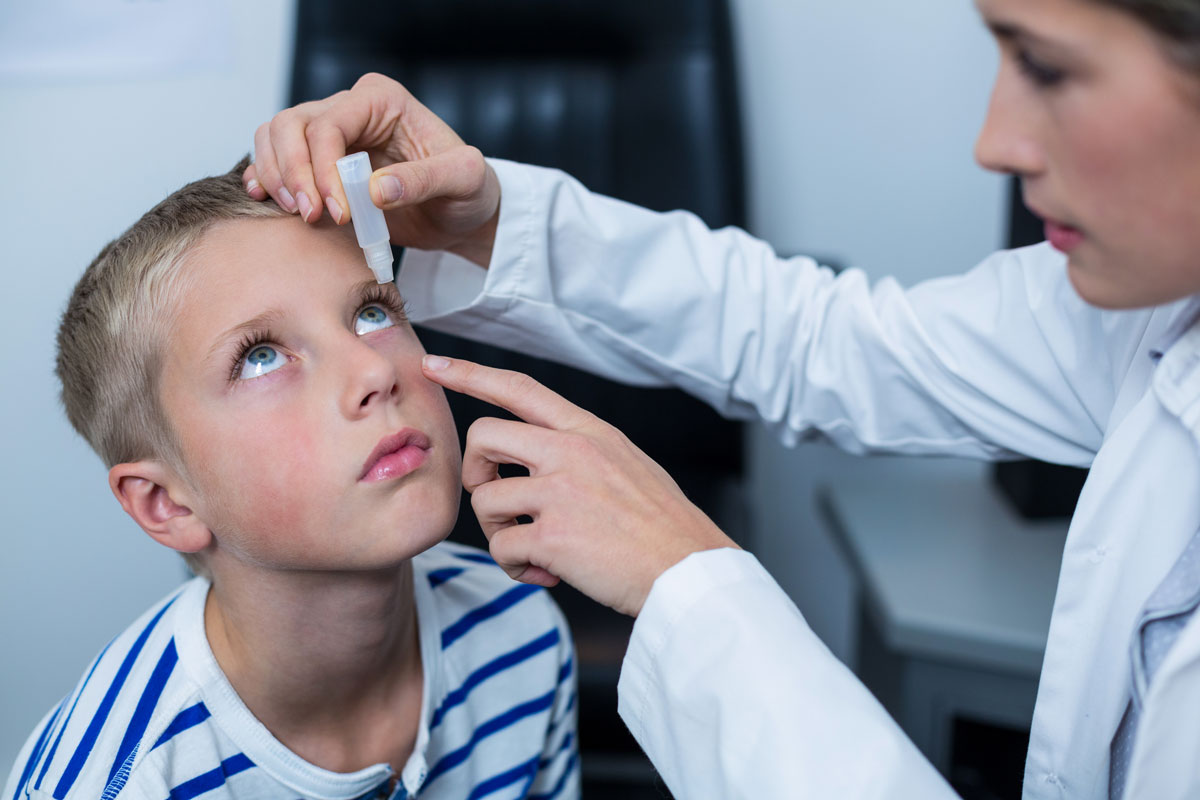 |
Low-dose atropine 0.1% successfully slowed myopia progression in children aged three to 17 in a cohort of US and European children. Photo: Getty Images. |
Children in numerous studies outside the United States have been shown to experience reduced myopia progression low-dose atropine. Now, these beneficial effects have been seen in a US and European sample as well, which may potentially lead to the first FDA-approved drop for myopia control, according to a paper presented at the 2023 ARVO Meeting in New Orleans.
In the Phase III randomized clinical trial, NVK002, a preservative-free atropine formulation, achieved meaningful impacts on myopia progression with a good safety profile. NVK002 is being developed by Vyluma and the results presented were from the company’s Phase III trial, called the Childhood Atropine for Myopia Progression (CHAMP) study.
The study included 576 participants aged three to 17 years old (spherical equivalent refraction -0.5D to -6D; astigmatism no worse than -1.5D), who were randomized 2:2:3 to receive once-daily placebo, NVK002 0.01% or 0.02% eye drops for three years. Response was defined as <0.5D of myopia progression during the study period.
Both doses of NVK002 slowed myopia progression. At 36 months, the 0.01% concentration significantly increased the proportion of responders compared with placebo and also significantly slowed down mean spherical equivalent refraction progression and axial elongation. The 0.02% concentration significantly slowed mean axial elongation but didn’t significantly increase the proportion of responders or slow mean spherical equivalent refraction progression. There were no serious adverse ocular events requiring emergent treatment, and non-ocular treatment-emergent events weren’t deemed drug related.
Although the recent LAMP2 study, which compared 0.05% and 0.01% concentrations of atropine, only found the former to be efficacious, this new study documents a treatment effect in the lower dose as well.
“For the first time in a US and European sample, it has been demonstrated that low-dose atropine can have a meaningful impact on myopia progression,” the researchers wrote in their abstract. “NVK002 0.01% demonstrated significant efficacy across all three main efficacy endpoints compared with placebo over three years, while both NVK002 concentrations had an excellent safety profile. NVK002 0.01% may offer the first approved pharmacological treatment option for myopia progression.”
Original abstract content © Association for Research in Vision and Ophthalmology 2023.
Zadnik K, Schulman E, Flitcroft DI, et al. Low-dose atropine for treatment of pediatric myopia progression: a double-masked placebo-controlled, randomized trial of 3-year efficacy and safety. ARVO 2023 annual meeting. |


